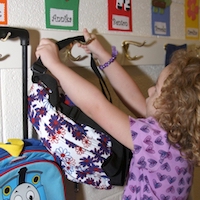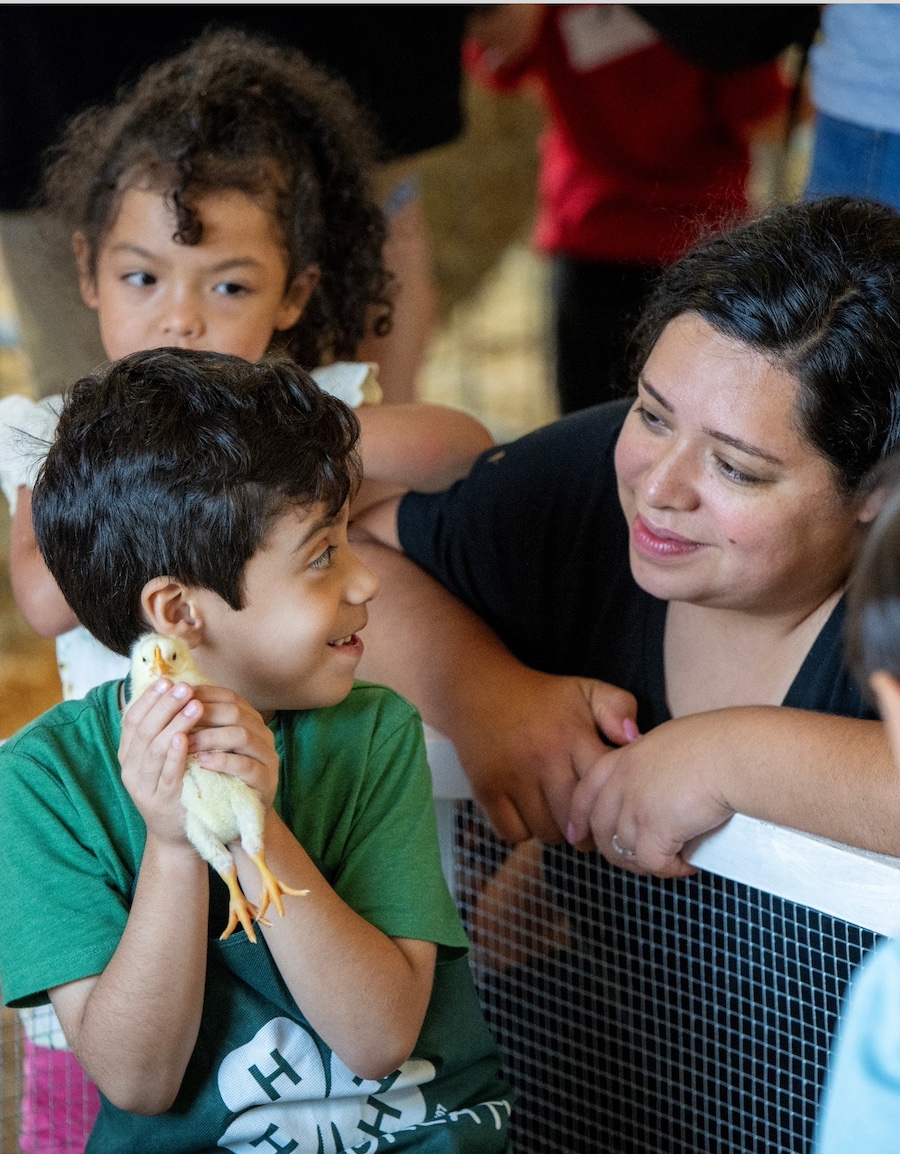New backpacks, jeans, and boxes of markers and crayons can help get kids ready to go back to school, but how should parents mentally prepare their children?
Getting kids excited about heading back to school and ready to learn might seem like a daunting task, but there are some simple strategies to help parents prepare their children, said Associate Professor Diane Bales, University of Georgia Cooperative Extension human development specialist.
First, get those brains running again.
Over the summer, the “summer brain drain” or “summer slide” can rob kids of the months of skills and knowledge that they learned over the previous school year.
Parents can prevent summer slide by keeping their kids engaged and learning throughout the summer, but if students “vegged out” earlier this summer, July is a great time to re-engage them.
Building routines and intellectually stimulating activities are two of the top ways parents can limber up their kids’ minds before the kids head back to school.
This can mean enrolling kids in formal camps or structured activities. But parents can also re-engage their children’s desire to learn at home by starting in-depth conversations about their children’s interests, whether that’s dinosaurs, dolphins or Minecraft. Parents can ask questions and get children to share some of their favorite factoids.
“Sometimes having the child teach the parent is good,” Bales said.
Preschoolers or elementary-age kids often become “experts” in something. They could be dinosaur or coin experts, and it’s good to have them teach their parents all about the Tyrannosaurus rex or coins of the world.
“Having things for kids to read or playing complex games with rules that they have to learn and think about, are things that can be helpful,” Bales said.
Showing kids that learning can be fun and doesn’t always need to be done in a classroom is key to keeping them from getting bored and resorting to playing video games or watching TV day in and out.
There are even resources for kids to learn science, technology, engineering and math (STEM) skills like coding.
“As kids get more sophisticated, they can create their own games and video segments,” Bales said.
For ideas, visit www.code.org and www.scratch.mit.edu, free resources with fun activities.
Preparing to go back to school
When it’s time to head back to school, kids may become anxious about their new teacher, new friends in class or simply breaking their summer routines.
This anxiety may make kids seem unexcited about heading back to school, Bales said.
“Reducing pre-first-day anxiety can be helpful,” Bales said. “If the school has an open house, go to it. Go meet the teacher. Tour the classroom.”
If that’s not available, talk to your child about what the upcoming year will be like, what they expect and what they’re excited about. For younger children, there are good books about going back to school, like “On the First Day of Kindergarten” by Tish Rabe and Laura Hughes.
Meeting other kids who will start the year with your child can also help settle first-day jitters.
“Finding other kids at summer camp, the playground or the swimming pool and setting up play dates can be helpful, just to make sure your kid goes in knowing someone,” Bales said.
Routines are the key to success
In addition to calming jitters, re-establishing school-year routines early can make a big difference in preparing students for their first day of class, Bales said.
“Planning and routines make a huge difference,” she said.
Planning ahead, laying out clothes the night before, having a ready-to-go breakfast, setting an extra alarm clock and making sure everyone is on the same page can make a huge difference during the stressful adjustment period. Stick with the same routine for a week or two to avoid missing homework, shoes or similar debacles.
“Routines, schedules and rituals are all very important,” Bales said.
Having a set schedule helps younger kids feel secure and, in turn, more confident and competent in starting the school year.
Plan ahead, stick with a routine and keep your child’s brain active during the dog days of summer to ensure a successful upcoming school year.
For more research-backed answers to child development questions, visit www.fcs.uga.edu/extension/early-childhood.





.png)

